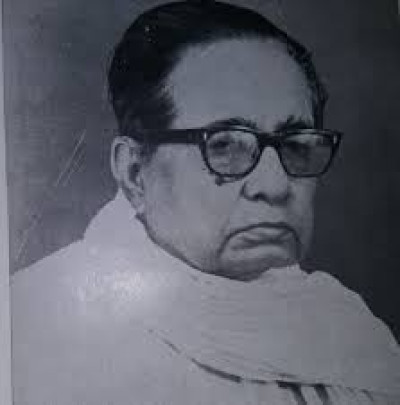Life & Legacy
His creativity, scholarship, and passion for Assamese culture helped shape the intellectual and artistic foundation of 20th-century Assam.
Early Life and Education
Atul Chandra Hazarika was born on 6th October 1903 in Amolapatti, Sivasagar, Assam. From a young age, he showed a deep interest in Assamese history, mythology, and the arts. He completed his education at Cotton College, Guwahati, and later earned a Bachelor of Law (LL.B.) degree.
While he worked in the legal field, his heart remained committed to literature and culture, where he would eventually leave an indelible mark.
Literary Contributions
Atul Chandra Hazarika was one of the most versatile writers of his time. His literary creations are admired for their rich language, philosophical depth, and cultural authenticity.
Dramas and Plays
Hazarika was a pioneer in Assamese mythological and historical drama, helping popularize theatre in Assam. His plays are known for their dramatic intensity, cultural themes, and philosophical reflections.
Some of his notable plays include:
-
“Ranakranti”
-
“Vikramaditya”
-
“Sita Haran”
-
“Duryodhan”
These works not only entertained but also educated audiences about India’s epics and Assamese ethos.
Mythological and Scholarly Works
Hazarika made extensive contributions to mythology and religious literature, translating and interpreting ancient texts for Assamese readers. His works on the Ramayana, Mahabharata, and Puranas are still considered valuable literary assets.
He also wrote in-depth essays and commentaries on Sanskrit literature, Indian philosophy, and Assamese culture.
Essays, Poetry & Children’s Literature
Besides drama, Hazarika wrote poetry, children’s stories, travelogues, and historical essays. His children’s literature helped shape the imagination of young Assamese readers, while his poetry reflected a deep love for his land and language.
Cultural Impact and Recognition
Atul Chandra Hazarika was not just a writer — he was a cultural architect of Assam. Through his plays and literary contributions, he revived interest in Assamese history and mythology during a crucial time of cultural awakening.
He was a former president of the Asam Sahitya Sabha (1960) and remained actively involved in the literary, theatrical, and educational movements in the state.
Major Honors and Awards:
-
Sahitya Akademi Award (for his literary contributions)
-
President of Asam Sahitya Sabha (1960)
-
Titles and honors from numerous literary and cultural bodies in Assam and India
Legacy
Atul Chandra Hazarika passed away in 1986, but his influence remains alive through his vast body of work. His plays are still performed, his books are still studied, and his vision continues to inspire writers, educators, and theatre practitioners in Assam and beyond.
He is remembered as a true guardian of Assamese language and culture — a dramatist who brought mythology to the stage, a scholar who decoded ancient wisdom, and a writer whose pen awakened generations.
Conclusion
Atul Chandra Hazarika was a multifaceted genius — a dramatist, writer, philosopher, and cultural historian. His lifelong dedication to Assamese literature and heritage earned him a place among the greatest literary icons of Assam.
His work stands as a shining example of how literature can preserve culture, ignite minds, and shape a society’s identity.
For those exploring the roots of Assamese drama and mythology-based literature, Atul Chandra Hazarika’s writings are an essential treasure.
